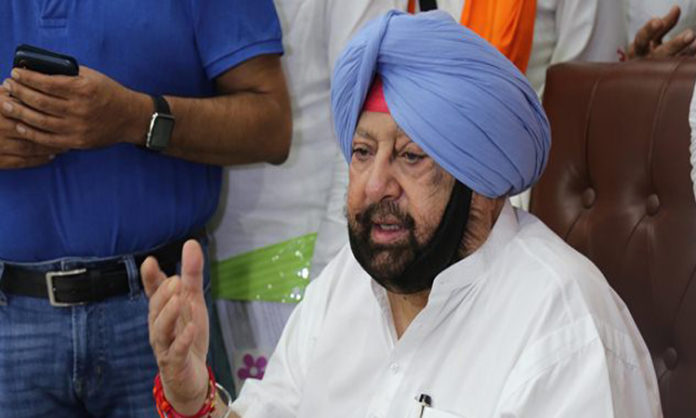Chandigarh, November 2: Expressing anguish at the unprecedented situation triggered by the growing air pollution in Delhi, Punjab Chief Minister Capt Amarinder Singh on Saturday wrote an emotional letter to Prime Minister Narendra Modi.
The letter underlined the need for evolving a consensus on tackling the issue, rising above political affiliations and regional considerations.In the letter, the CM said, “No Indian, and no one in Punjab, is oblivious to the misery of our brethren in the national capital, whatever many around the country might have been led to believe.”
Pointing out that his own children and grandchildren living in Delhi were currently sharing the plight of the lakhs of people there, he said the prevailing situation “has exposed the hollowness of our claims of being a progressive and developed nation”.
“How can a country be called developed when its capital city has been reduced to a gas chamber, not by any natural disaster but by a series of man-made ones?” he asked.
Making it clear that he had no intention of washing his hands of Punjab’s responsibility, the CM said, however, that the entire country, including Delhi and the Centre, had allowed “this state of affairs to emerge and sustain”.
Admitting that stubble fires, supported by the winds blowing in the wrong direction, were contributing to the toxic levels of air pollution that prevail today in Delhi, the CM noted that data from several independent agencies had pointed out that large-scale industrial pollution, traffic overload and the excessive construction activity taking place in Delhi were equally, if not more, to blame.
Amarinder said he took no solace from this data, nor could this blame-game help any of them to “assuage our own guilt in a matter of such serious national consequence”.
“The harsh truth is that while all of us are busy conveniently passing the buck, Delhi’s people are reeling under excruciating misery,” he wrote.
The CM said Punjab had tried to enforce the law against stubble-burning to the maximum extent possible, and was even penalising the farmers.
Amarinder wrote that he had expected the Centre “to have taken the matter in its hands long back, to find a holistic solution to the grave problem”. That, unfortunately, had not happened, despite even the Supreme Court expressing its concern on the rapidly deteriorating situation, he lamented.










































